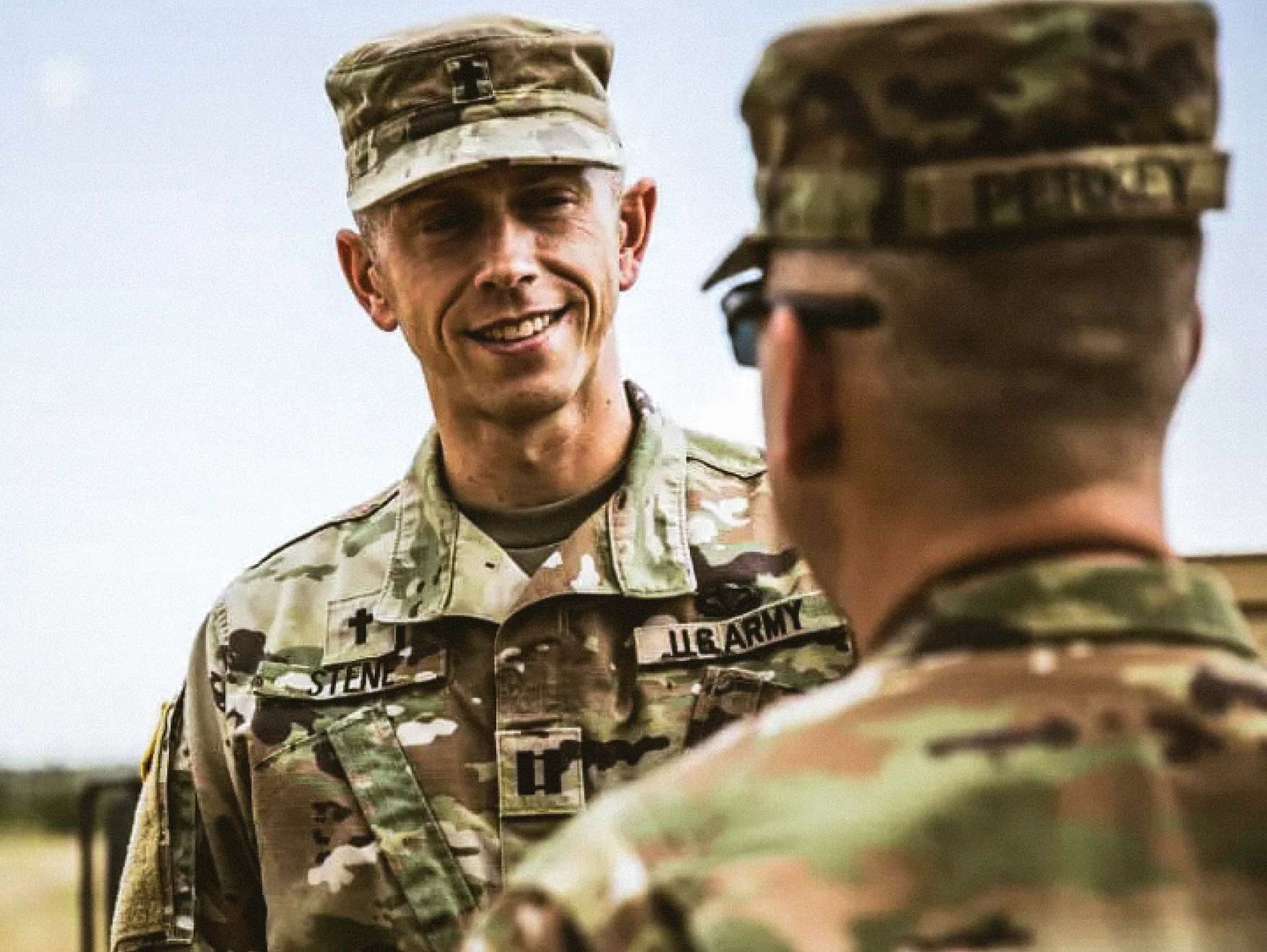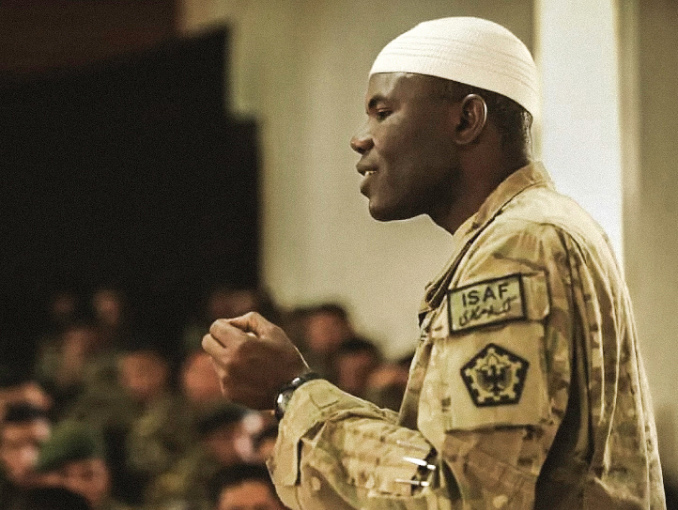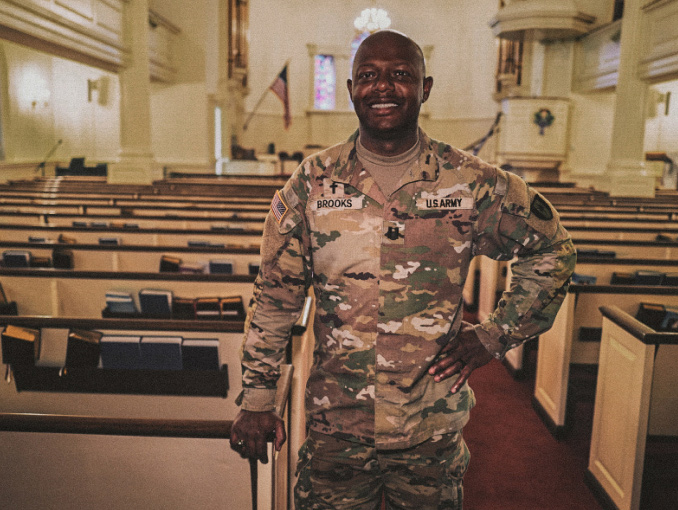Serve part time across the country.
As a Chaplain in the Army Reserve or Army National Guard, you’ll serve part time in support of your community, state, and country. You’ll be able to pursue a civilian ministry while you serve and train near home.
Care for the spiritual, moral, and emotional well-being of the Army—and make it stronger from the inside out.

Nurture the soul of the Army. As an Army Chaplain, you’ll be a commissioned Officer who gives emotional guidance to Soldiers and their families as a spiritual counselor. Army Chaplains adopt innovative approaches to care by recognizing the physical, mental, and spiritual challenges Soldiers face every day.

Help Soldiers in the Army build inner resilience and support Army leaders as they manage difficult decisions surrounding the future of our country.
Observe the distinct doctrines of your faith while honoring other denominations and ensuring the right for others to observe their own.
Enjoy the satisfaction of making a difference in the lives of Soldiers and their loved ones, all while performing a vital service for your country.
There are certain requirements and steps you’ll need to take to become part of the U.S. Army Chaplain Corps.
Be a U.S. citizen by the time you commission as an Officer
Not older than 42 years old at the time of commissioning
Completed basic theological education for a denomination or faith tradition (often, the Master of Divinity degree)
Completed at least two years of post-theological education professional experience in a denomination or faith tradition (active duty only)
Chaplains serve almost every type of unit in the Army, from infantry and intelligence to hospitals and community ministries.
As a Chaplain in the Army Reserve or Army National Guard, you’ll serve part time in support of your community, state, and country. You’ll be able to pursue a civilian ministry while you serve and train near home.
Support the goals of Army Chaplains as an enlisted Soldier. Religious Affairs Specialists are relied on to coordinate religious programs and worship services on behalf of Army Chaplains.
If you’re a ministry student who wants to get a head start on a career in Army Chaplaincy while still in school, consider the Chaplain Candidate Program (CCP). You’ll make a real impact on the lives of Soldiers and their families, along with enjoying the benefits of an Officer and receiving up to 100% of tuition costs.

Not finding what you need?
Chat with us any time.
As an Army Chaplain, you won’t participate in the Basic Training that enlisted Soldiers complete. Instead, you’ll attend the Chaplain Basic Officer Leader Course (CHBOLC), a required training course that focuses on your professional, physical, academic, and spiritual growth as a military Chaplain.
Yes, you must meet Army height and weight standards, and pass the Army Fitness Test (AFT).
No. Army Chaplains are not issued weapons and are not allowed to engage in combat. During times of combat, they are protected by Religious Affairs Specialists.
The Army Chaplaincy is a multi-faith program—ministers, priests, imams, rabbis, and more, make up the Chaplaincy. While each Army Chaplain is a clergy person in their specific denomination or faith group and won’t be asked to perform services or duties outside of their denomination, their role is to promote spirituality and faith as a whole, and serve all Soldiers, regardless of background and religion.
You have no saved jobs.
Take a short quiz or explore more than 200 jobs that might interest you.
Army Career Match